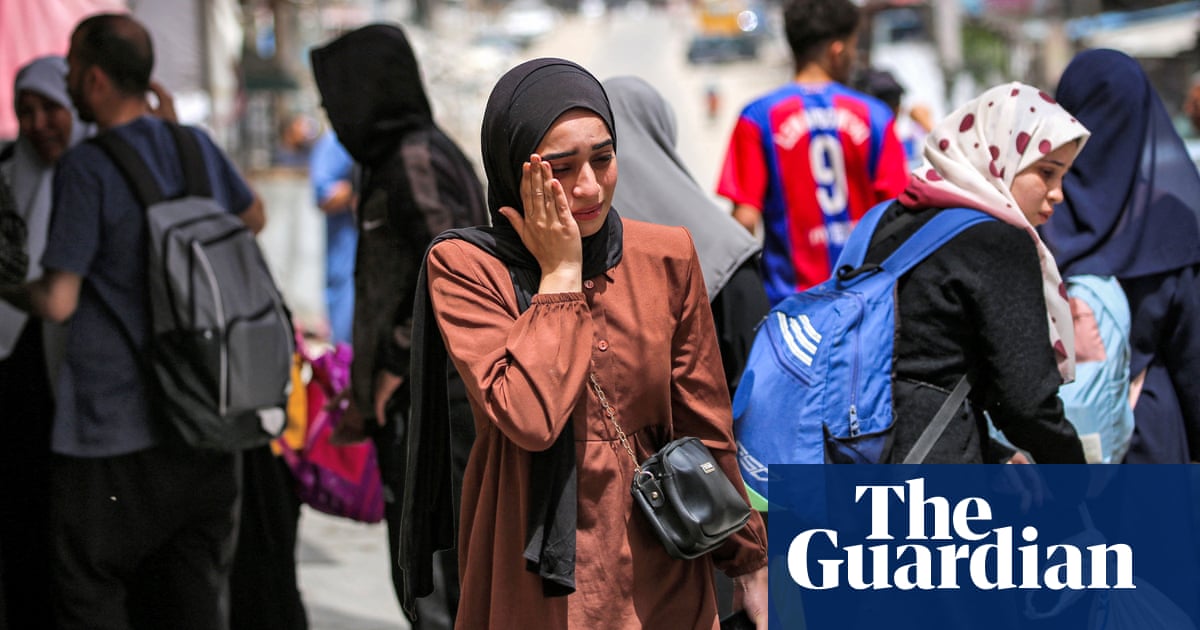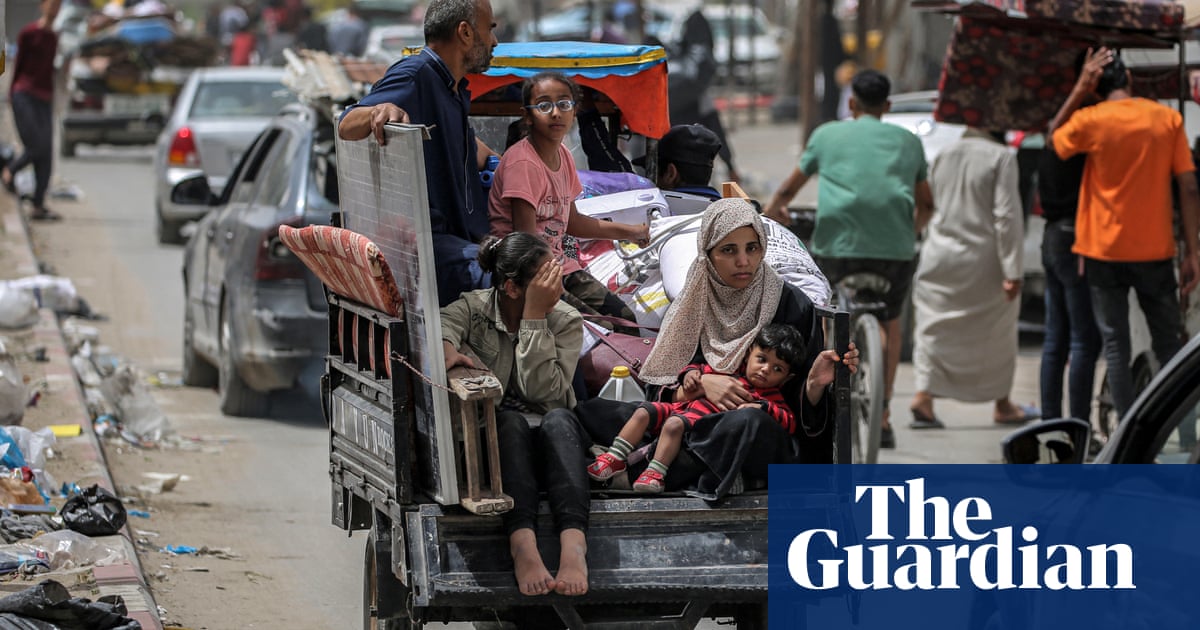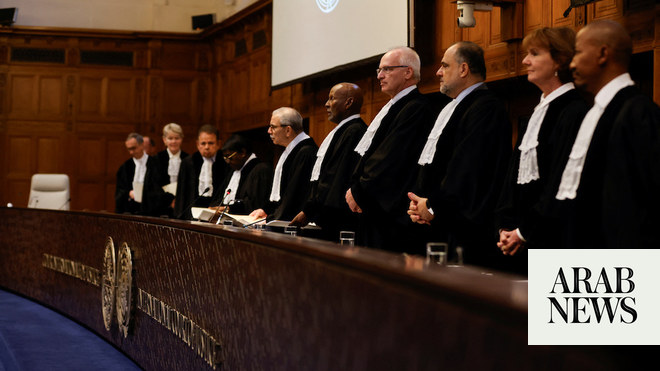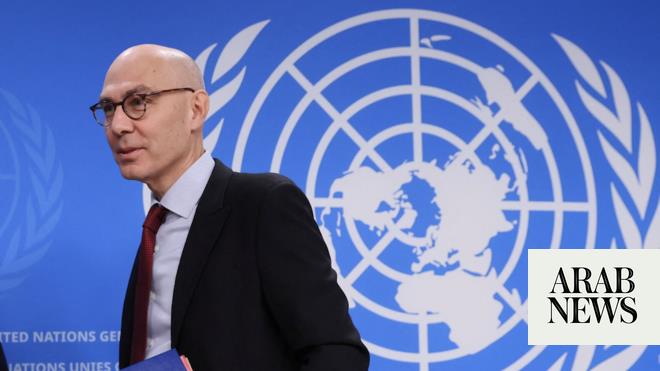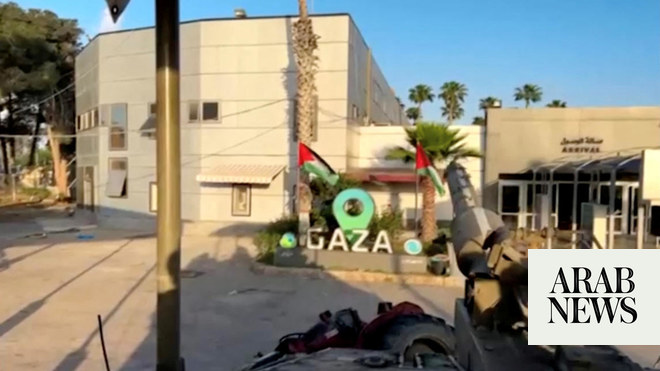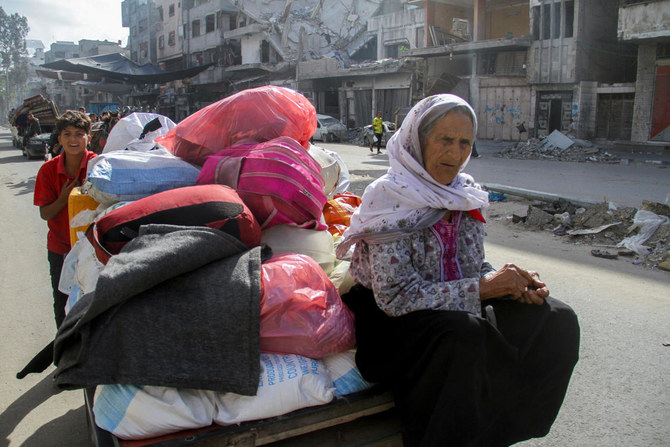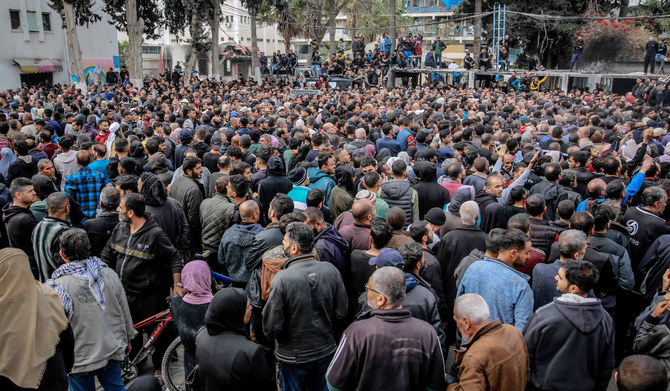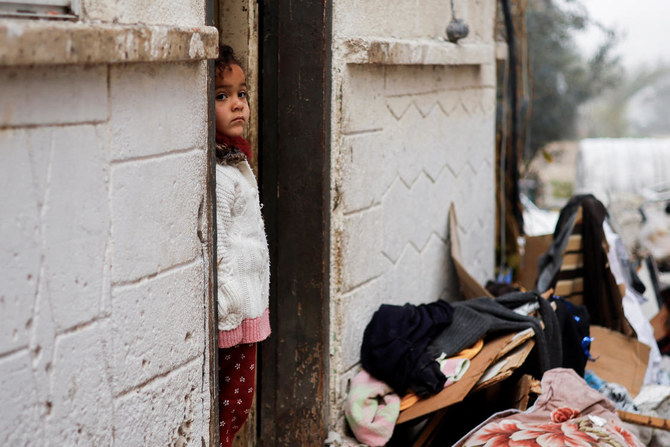
Gazans fear Israeli advance on Rafah would ‘end in massacres’
Rafah population now five times its pre-war size since Israel-Hamas conflict erupted in October
GAZA: Israeli Prime Minister Benjamin Netanyahu has ordered the army to prepare to “evacuate” hundreds of thousands of Palestinians from Gaza’s Rafah, his office said Friday, after Washington warned it would not support any ground assault on the city.
The show of defiance against Israel’s main ally came after President Joe Biden issued his strongest criticism yet of Netanyahu’s conduct of the war, warning the response to Hamas’s October 7 attack had been “over the top.”
Netanyahu told military and security officials to “submit to the cabinet a combined plan for evacuating the population and destroying the battalions” of Palestinian militant group Hamas holed up in Rafah, a statement from his office said.
The city is the last main population center in the Gaza Strip that Israeli troops have yet to enter but is also the main point of entry for desperately needed relief supplies.
Palestinians displaced from other Gaza towns and cities have flooded into Rafah, sending its population soaring to an estimated 1.3 million, more than half of the territory’s 2.4 million population.
The United States is Israel’s main international backer, providing it with billions of dollars in military aid.
But the US State Department said it does not support a ground offensive in Rafah, warning that, if not properly planned, such an operation risked “disaster.”
And in a sign of his growing frustration with Israel’s leadership, Biden said its military retaliation for the October 7 attack had gone too far.
“I’m of the view, as you know, that the conduct of the response in Gaza, in the Gaza Strip, has been over the top,” the US president said.
“There are a lot of innocent people who are starving... in trouble and dying, and it’s got to stop.”
Witnesses reported new strikes on Rafah overnight, after the Israeli military intensified air raids.
AFP images showed scenes of devastation in Rafah’s streets, where people queued for increasingly scarce water.
The Hamas-run territory’s health ministry said more than 100 people were killed in overnight bombardment, including at least eight in Rafah.
The Palestinian Red Crescent said three children were killed in a strike in Rafah, where many displaced are trapped in tents pushed up against the Egyptian border.
“We heard the sound of a huge explosion next to our house... we found two children martyred in the street,” said Jaber Al-Bardini, 60.
“There is no safe place in Rafah. If they storm Rafah we will die in our homes. We have no choice. We don’t want to go anywhere else.”
The Israeli army said its forces had “eliminated 15 terrorists” in the past day in Khan Yunis, southern Gaza’s biggest city. It also reported fighting in central and northern Gaza.
Hamas’s unprecedented October 7 attack resulted in the deaths of about 1,160 people in Israel, mostly civilians, according to an AFP tally based on official Israeli figures.
In response, Israel vowed to eradicate Hamas and launched air strikes and a ground offensive that have killed at least 27,947 people, mostly women and children, according to the health ministry.
Militants seized 250 hostages, 132 of whom are still in Gaza, but 29 are presumed dead, Israel has said.
State Department deputy spokesman Vedant Patel said Washington had “yet to see any evidence of serious planning” for an Israeli ground operation in Rafah but said such an assault was “not something we’d support.”
“To conduct such an operation right now with no planning and little thought... would be a disaster,” Patel warned.
Secretary of State Antony Blinken had conveyed Washington’s concerns to Netanyahu directly during talks this week in Jerusalem, he added.
UN chief Antonio Guterres said news of the coming Israeli push into Rafah was “alarming,” saying it “would exponentially increase what is already a humanitarian nightmare.”
The United Nations agency for Palestinian refugees, UNRWA, warned against a major Israeli operation in Rafah.
“There’s a sense of growing anxiety and growing panic in Rafah. People have absolutely no idea where to go after Rafah,” said its chief, Philippe Lazzarini.
On the ceasefire talks, Blinken insisted he still saw “space for agreement to be reached” to halt the fighting and bring home Israeli hostages, even after Netanyahu rejected what he labelled Hamas’s “bizarre demands.”
Cairo hosted new talks Friday with Qatari and Hamas negotiators seeking a Gaza ceasefire and an agreement for a hostage-prisoner exchange.
A Hamas source told AFP there had been “positive and good discussions” in the Egyptian capital so far and expressed hopes for more progress.
The impact of the war has been felt widely, with violence involving Iran-backed allies of Hamas across the Middle East surging since October and drawing in US forces among others.
Lebanon’s Iran-backed Hezbollah movement said Friday it had fired dozens of rockets into Israel overnight in response to attacks in its south, including the city of Nabatiyeh.
It came a day after an Israeli strike on a car in Nabatiyeh seriously wounded a Hezbollah commander, sources on both sides of the border said.
On the same day, the US military struck four unmanned surface vessels and seven cruise missiles it said Yemen’s Iran-backed Houthi militia had been set to launch against ships in the Red Sea.
The strike came after US forces last week launched a wave of attacks on Iran-linked targets in Iraq and Syria following the killing of three US troops in neighboring Jordan.




